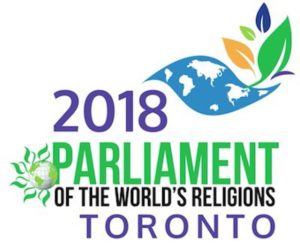The Justice of Love
The 2018 Parliament of the World’s Religions will be held November 1-7, in Toronto. I’m especially excited about the Parliament theme: “The Promise of Inclusion, the Power of Love: Pursuing Global Understand, Reconciliation, and Change.”
With such a grand title, it’s not surprising representatives from diverse religions will convene to explore a diverse set of topics! Some presenters are long-time contributors to this conversation. But many are new voices with potentially exciting perspectives.
Justice at the Parliament
I’ve been working with leaders of the Parliament’s “Justice” track/emphasis. Addressing justice seems appropriate given the Parliament’s mission to promote “a more just, peaceful, and sustainable world.”
I’m particularly interested in the relation between love and justice. I’ve published many books and articles exploring the meaning and forms of love. Some of my work is aimed at topics relevant to many religious traditions and many disciplines of science. But as a Christian, I also sometimes do research with a Christian audience in mind.
I’ll be speaking as part of a 3-person panel exploring the relationship of love and justice in the Abrahamic traditions: Christianity, Islam, and Judaism. My friends Rabbi Shai Held and Jihad Turk are also on the panel.
Forms of Justice
For many in the Abrahamic traditions, “justice” brings to mind retaliation, punishment, or retribution. In this sense, justice is thought to describe the consequences wrongdoers must face for their hurtful actions. God exacts justice in this way, they say, and we are sometimes justified in exacting such justice.
For others, “justice” means fairness, equality, and securing well-being for those treated unjustly. Activists for social justice, for instance, stand on behalf for those treated unfairly or oppressed.
These diverse meanings of justice can butt heads. One group who may want to see wrongdoers get their “just deserts.” Others want to stop practices of discrimination, power imbalance, or prejudice.
Justice as an Aspect of Love
I see justice as a feature of love not an opposite or alternative. I don’t pit love and justice against one another.
On my view, justice plays a key role in love’s attempts to promote overall well-being. I define love, in fact, as acting intentionally, in response to God and others, to promote overall well-being. That last phrase, “promote overall well-being,” asks the questions of justice in terms of equal distribution of goods and resources.
The issues of justice prompt the lover to think about how his or her actions affect the whole. Actions are not loving that clearly undermine the common good.
For instance, giving too many goods and resources to a few is not a loving action. In our everyday interactions and larger social actions, we must ask the questions of fairness and equity.
Christian Love and Justice?
To prepare for this interfaith Parliament panel, I’m working to formulate a Christian view of love and justice. Notice I said “a” Christian view; I don’t claim to represent the views of all Christians. But I do wonder if Christians have something important to say about love and justice in light of their beliefs about Jesus, the church, the “least of these,” and Christian social ethics more broadly.
I’m inclined to think love is love no matter the religious tradition. And the same for justice. But the ways each tradition may express love and justice, emphasize them, or express them in practice may differ. But I’m still working this out!
I encourage you to consider attending the Parliament in November. It’s not too late to register. Consider this essay my way of inviting you to attend the Justice Track sessions.
And if you come to the Three Abrahamic Traditions panel, say hello!

